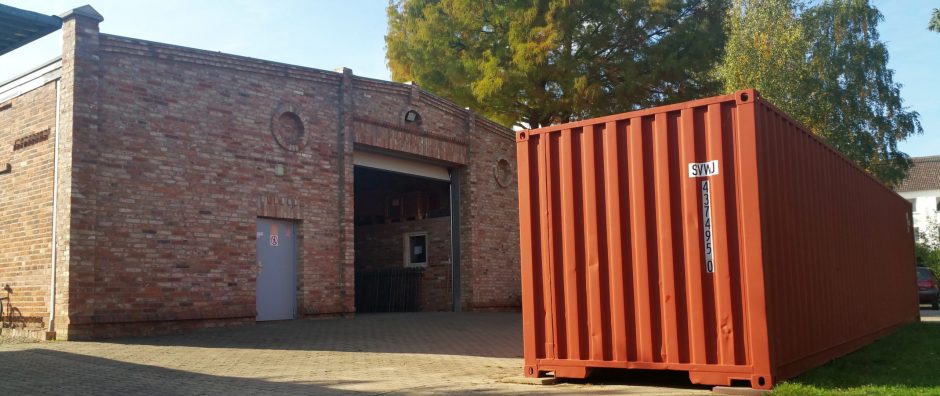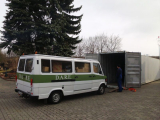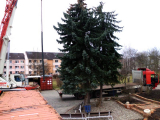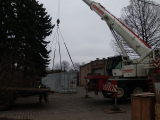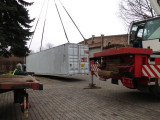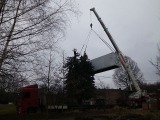The German government-owned Gesellschaft für Internationale Zusammenarbeit (GIZ) provided a transport subsidy, while Arbeit und Dritte Welt repaired a 40′ high-cube container and contributed several hundred tools and workshop accessories for wood and metal. After Hildesheim customs had checked the donations, the conditions for a further transport by the Lernen-Helfen-Leben association were fulfilled.
Association board member Bernd Blaschke from Düsseldorf writes:
“The two associations “Lernen-Helfen-Leben” in Germany and “Developmental Association for Renewables Energies” in Nigeria have been working together for 5 years on a probably unique project: CDM funds are being used to support the sale of highly efficient wood-saving stoves. This project is the first in Africa and there are only 16 of its kind in the world. The Nigerian partner organization now has experience of how to sell such stoves to men and women and the targets for the next few years are correspondingly optimistic: the aim is no longer 2,000 per year but 10,000 per year. With a sales area twice the size of Germany, the small Berlingo is overstretched, a proper truck is now needed, equipped with two rows of seats so that a larger team can drive to the families in the villages if necessary, but 100 of our stoves have to be transported in any case. Our Nigerian friends had actually asked for a bus with air conditioning, which is understandable with midday temperatures slightly above 40 degrees. If the goal could be achieved by the end of the year, then there will be a bus with air conditioning and, on top of that, one that can handle vegetable oil, because our partners are busy planting jatropha and collecting the nuts, which make an excellent vegetable oil. Meanwhile, our German friends are looking for a suitable diesel transporter that can be converted to run on PÖL. This could open up a whole new market for Nigeria, as petrol and diesel prices have risen by almost 100% since January 1st. The container also contains a solar system for a bungalow built entirely from plastic bottles, another first in Africa. The German master builder Andreas Froese has built Africa’s first bottle house in Nigeria and now the interior fittings are still missing: light from solar power, water from the roof solar system and a modern separating toilet (there are only a few of these in Germany). When this bottle bungalow is finished, it will be a place of pilgrimage for builders and architects, because this is Africa’s house of the future: made from environmental waste and yet sustainable, innovative and inexpensive and therefore forward-looking, Africa is without doubt the continent of the future.
Further information can be found on the L-H-L website.”
